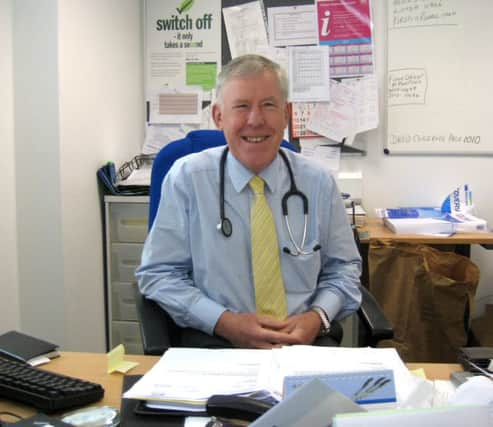Dr Frank Dunn column: We have made huge strides


We have made huge strides in prevention and in specific and effective treatments in a whole range of areas. Advances such as key-hole valve replacements, medications and devices that can record heart beats for months or even years were beyond imagination. Despite this when cardiologists a century from now look back on how we practice, they will shake their heads at our primitive treatments!
Over the past three years, the Royal College of Physicians and Surgeons of Glasgow has held a high quality meeting on advances in heart disease. The first symposium was held on Valentine’s Day and there were many references to songs which contain the word heart such as “what becomes of the broken hearted” and my favourite “heart beat why do you miss when my baby kisses me?”
Advertisement
Hide AdAdvertisement
Hide AdThe meeting comprised four sessions. The first discussed faints and seizures and this was highly appropriate given the recent tragic incidents involving drivers. The key points emphasised were the importance of the history and the need to interview a family member who may have witnessed the event.
Sometimes a faint can be associated with transient shaking but this does not imply epilepsy. There are many reasons for faints and one in two of us will have at least one faint during our lifetime. It is clearly an important area in regard to ordinary and Heavy Goods Vehicle Licences.
The second session was on key-hole operations for narrowed or leaky valves. The aortic valve, which is located just above the main beating chamber, is far more amenable to key-hole surgery than the mitral valve.
The conventional open heart valve operation still remains an excellent option with a low complication rate.
Advertisement
Hide AdAdvertisement
Hide AdThe present guidelines indicate key-hole aortic valve replacement in patients who are regarded as too frail for the conventional operation. However, the indications for key-hole surgery are likely to broaden and there will be a report on this soon. Clearly the idea of having surgery without a major scar in the chest is appealing as is the quicker recovery time. There are down sides also to these procedures and these are all evaluated in advance of the operation.
The third session discussed advances in heart attack management and the new plan to triage all heart attack patients to the Golden Jubilee.
This will greatly reduce the time spent by patients in their base hospital awaiting detailed tests and will therefore optimise their care and facilitate earlier discharge home.
This work is being led by a former trainee Dr Mitchell Lindsay and it is satisfying to see such young consultants blossoming into leaders in their field.
Advertisement
Hide AdAdvertisement
Hide AdThe final session included prevention and it was emphasised that lifestyle measures are as important as drug treatment.
Physical activity, weight loss, smoking cessation and a healthy diet are all key. One point of interest was the higher success rate of lifestyle changes if other family members became involved. This is well worth remembering.
There was also discussion about outpatient presentations with chest pain and the best way of approaching this. They key point here is to take a careful history. This allows assessment whether the discomfort is angina. Typical angina indicates underlying narrowing of the heart arteries and can be a warning sign of an impending heart attack.
Pain or discomfort that is thought not to be from the heart will have an alternative explanation which must be sought. Non-cardiac chest pain is not a diagnosis and cardiologists including me need to remember that.